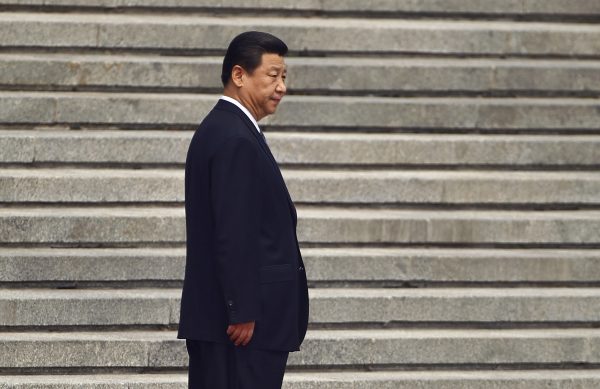, while former government officials ‘revolve in’ to take their place. Although the term is new to China, the practice is not entirely unfamiliar. China’s ‘revolving door’ has largely operated in one direction — with retired senior party officials moving into think tanks. But Chinese President Xi Jinping’s recent remarks and actions suggest that a fully-fledged ‘revolving door’ will soon become a mainstay of Chinese think tanks.
Xi has regularly emphasised the need to strengthen and develop China’s think tanks, suggesting think tanks as a new venue from which to recruit the party leadership. Xi expressed his vision for ‘agglomerating talent into research institutions’ and ‘breaking institutional boundaries’ to allow for an exchange of talent between the private sector, government and think tanks. He explicitly noted that the ‘revolving door mechanism commonly observed in foreign think tanks was an asset that China should seek to emulate’.
Numerous retired Chinese Communist Party (CCP) leaders have recently gone on to join prominent Chinese research institutes and think tanks. Movements in the opposite direction — from think tanks into government — are decidedly rare: substantial leadership experience at the provincial and local levels has long been a prerequisite for becoming a top party leader.
But in a departure from CCP norms, Xi has started to appreciate think tank experience when promoting personnel into his inner circle. Notably, two of Xi’s most valued aides — Wang Huning and Liu He — have advanced their careers through government think tanks and are now primed to take top positions in the party. Wang and Liu became part of Xi’s inner circle because of their abilities as thinkers and advisers — neither one has held a leadership position at the local or provincial levels.
Xi is also widening the door for foreign-educated returnees to join the leadership. In August 2016, a party directive called for members of the Western Returned Scholars Association to be recruited into the party. Foreign-educated returnees abound at China’s research institutes and think tanks — since as early as 2005, the entire faculty of the China Center for Economic Research at Peking University had studied abroad. Because foreign-educated returnees dominate the rosters at think tanks, Xi’s emphasis on recruiting these candidates carries the potential to institutionalise a system whereby think tanks help channel scholars into the party leadership.
The composition of Xi’s inner circle reveals his confidence in the abilities of foreign-educated returnees to excel in the party leadership. Xi’s college roommate, Chen Xi, was a visiting scholar at Stanford University in the early 1990s and is currently executive deputy director of the CCP’s Central Organization Department, which oversees Xi’s personnel matters. Fang Xinghai, Vice Chairman of the China Securities Regulatory Commission, and the aforementioned Wang Huning and Liu He have studied and lived abroad: Wang was a visiting scholar at the University of Iowa and the University of California, Berkeley, and Liu received his master’s degree from Harvard’s Kennedy School of Government.
These are not isolated examples. There has been a clear upward trend in the representation of returnees at high levels of the party leadership. Returnees occupied 14.6 per cent of all seats in the 18th Central Committee formed in 2012 — an increase of 4 per cent and 8.2 per cent from the 17th and 16th Central Committees respectively. Though overall numbers remain small, it stands to reason that as the party further embraces returnees, think tanks will be the prime channel through which groups of policy-oriented, forward-looking leaders will emerge. In other words, think tanks will bridge returnees with the party.
A true ‘revolving door’ through China’s think tanks is still in its nascent stages. Xi’s call to increase the exchange of talent between think tanks and the government and his efforts to bring foreign-educated returnees into the party lay the foundations for think tanks to become a new channel for fostering and recruiting party leadership.
The impact of this development requires further study: it may work to Xi’s advantage, allowing him broaden his power base and reconcile his relationship with China’s intellectuals — who have been critical of his governance. Alternately, it could create tensions between domestically trained and foreign-educated leaders. What is certain is that this new ‘revolving door’ will inject diverse viewpoints and backgrounds into the membership of the 19th Party Congress and beyond, raising a new set of opportunities and challenges for China’s domestic and international affairs.
Cheng Li is Director and Senior Fellow and Lucy Xu is Senior Research Assistant and Communications Coordinator at the John L. Thornton China Center, The Brookings Institution. You can follow Lucy Xu at @LucyPXu and the Brooking China Center at @BrookingsChina.
A version of this article was first published here in China–US Focus.

